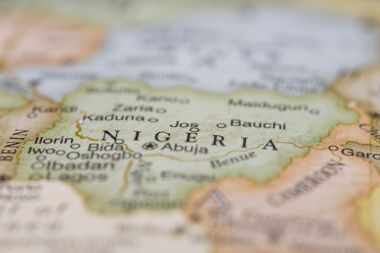700 Christians killed in Nigeria during May, NGO report claims

(CP) At least 700 Christians were reportedly killed in Nigeria during the month of May, according to a report released by the Anambra-based International Society for Civil Liberties and Rule of Law.
In one of the "bloodiest" episodes of anti-Christian violence in the country's history, the north-central Plateau State was reported to be the most impacted area, particularly in Mangu county. The report alleges that a minimum of 300 Christians were slaughtered over the span of three days (May 15 to 17) in the state.
The report also alleges at least 1,100 Christians were killed by jihadis between April 12 and June 12, representing an average of 17 deaths per day.
"The period under review also represents one of the bloodiest in anti-Christian attacks in Nigeria," the report states.
The NGO, founded by Christian criminologist Emeka Umeagbalasi, draws its statistics from a variety of sources, including local and international media, religious organizations, community organizations, security channels, research, intergovernmental organizations, nongovernmental organizations, human rights bodies, international parliamentary organizations or diplomatic institutions.
The report comes as Nigerian Christians and human rights groups have voiced concerns for years that the violence being carried out against predominantly Christian farming communities in the Middle Belt states by radicalized herdsmen has reached genocidal levels as thousands have been killed in recent years.
However, the Nigerian government has rejected claims that the violence is influenced by religion and insists it's part of decades-old farmer-herder clashes. Additionally, data cited by the U.S. State Department suggests that violence targeting Christians accounts for a small fraction of the killings.
The new report identifies Benue as the second hardest-hit state, documenting 110 deaths from May to early June, including 40 killed within a 24-hour period from June 3 to June 4. Between April 12 and June 12, the Christian death toll in Benue surpassed 190.
Kaduna state was named the third most deadly region, the report found. Over the same two-month span, it witnessed the murder of at least 100 Christians. On April 15, 33 were killed in Runji village, an attack that resulted in the destruction of 42 homes.
According to the Southern Kaduna Peoples' Union, over 245 communities in Southern Kaduna have been brutally seized by Fulani radicals within the past six years, the report says.
The report also highlights that at least 100 churches were torched or destroyed between April and June, with Plateau State alone accounting for 28. Among the victims were clergy, with the report stating that no fewer than 20 Christian pastors were kidnapped or murdered over this period.
The NGO also alleges a troubling pattern of abductions. From Kaduna to Niger to Borno and more, it is reported that over 1,400 Christians were taken in the past two months. Kaduna State topped the list with at least 700 abductions, followed by Niger State with 300.
The report suggests a devastating impact on Christian communities since 2016, with over 1,000 communities reportedly being displaced and subsequently occupied by attackers. Among these, Benue state lost 400 communities, Kaduna 245, and Plateau 200.
Intersociety previously reported in April that 1,041 Christians had been murdered in the first 100 days of the year, with an additional 700 abducted. The organization's data now indicates that from January to June, no fewer than 2,150 were killed and over 1,400 abducted.
As Nigeria continues to see violence in its farming-rich Middle Belt states, it also faces the presence of radical Islamic extremist groups like Boko Haram and the Islamic State West Africa Province in its northeast.
Despite the scale of the situation, the international community has yet to respond decisively to this emerging humanitarian disaster. Many fear that the continued absence of adequate intervention will only allow for the violence to persist.
The Nigerian government has yet to respond to the claims made in the NGO report.
Previous Intersociety reports have highlighted the involvement of various groups in the violence, including jihadist Fulani herdsmen, Boko Haram, the Islamic State West Africa Province and the al-Qaeda-affiliated Ansaru.
Predominantly Muslim Fulani comprise hundreds of clans of many different lineages across Africa who do not hold extremist views, but some Fulani adhere to radical Islamist ideology, the United Kingdom's All-Party Parliamentary Group for International Freedom or Belief stated in a 2020 report.
Earlier this year, the U.S. State Department under President Joe Biden reaffirmed its decision to remove Nigeria from its list of countries of particular concern for religious freedom violations after conducting what it described as a "careful review."
Nigerian Christians, human rights groups and members of Congress objected to the decision to lift the CPC designation from Nigeria after Nigeria was added to the list in 2020 under the Trump administration.
Nadine Maenza, the former chair of the bipartisan U.S. Commission on International Religious Freedom, which advises the State Department and Congress about religious freedom matters, was "especially displeased" with the decision.
The CPC designation carries with it the possibility for sanctions and other deterrence actions to influence those countries to improve religious freedom conditions.
In its latest International Religious Freedom Report, the U.S. State Department noted a spike in deadly violence impacting both Christians and Muslims in Nigeria. The NGO Armed Conflict Location & Event Data Project reports there were 3,953 civilian deaths from violence across the country in 2022, with violence targeting Christians accounting for 5% of all violence.
"There continued to be frequent violent incidents, particularly in the northern part of the country, affecting both Muslims and Christians, resulting in numerous deaths," the State Department's report on Nigeria states. "Kidnappings and armed robbery by criminal gangs increased in the South as well as the North West, the South South, and the South East. The international Christian organization Open Doors stated that terrorist groups, militant herdsmen, and criminal gangs were responsible for large numbers of fatalities, and Christians were particularly vulnerable."











